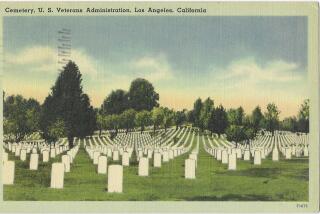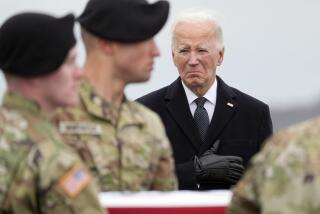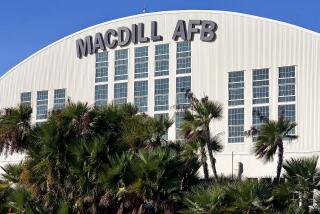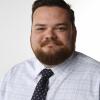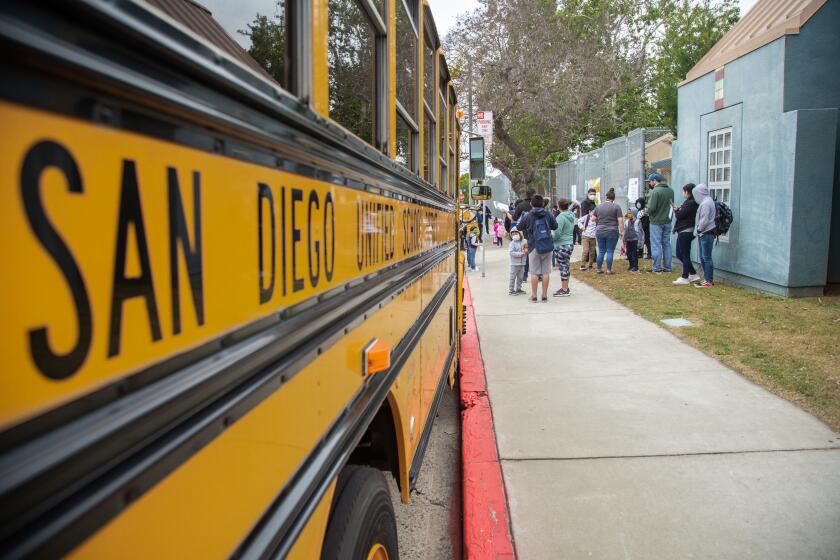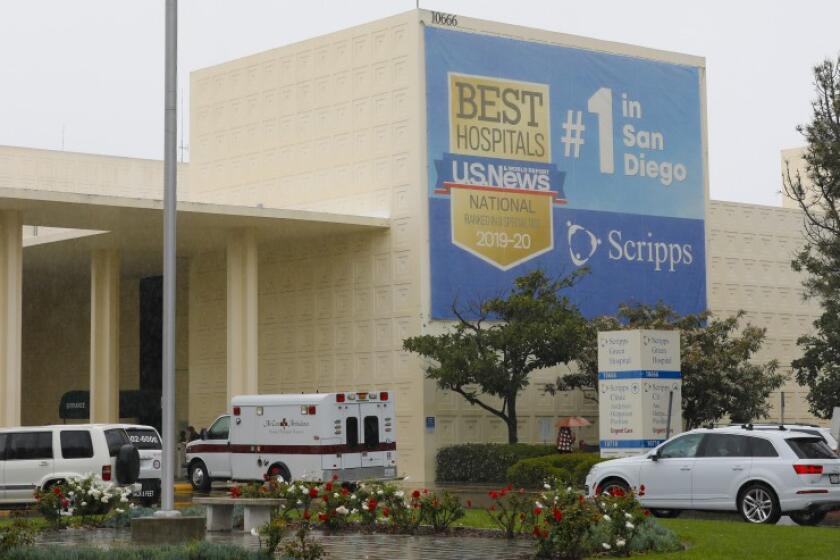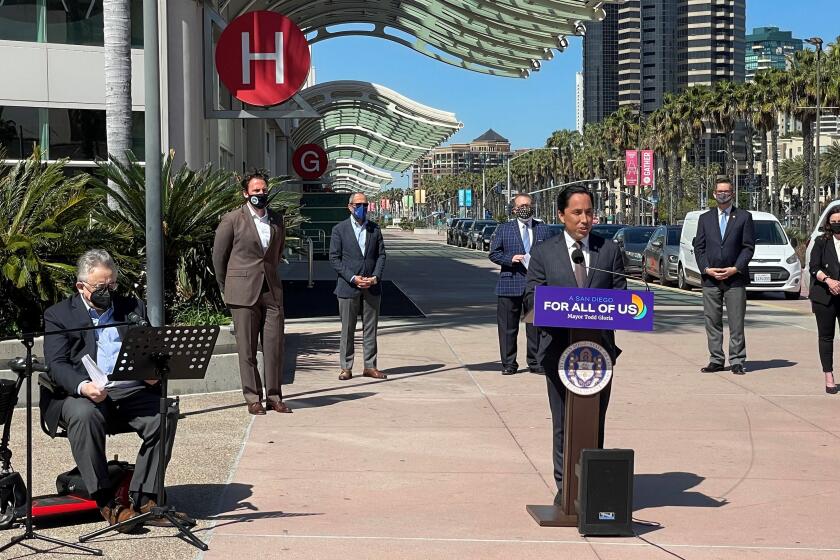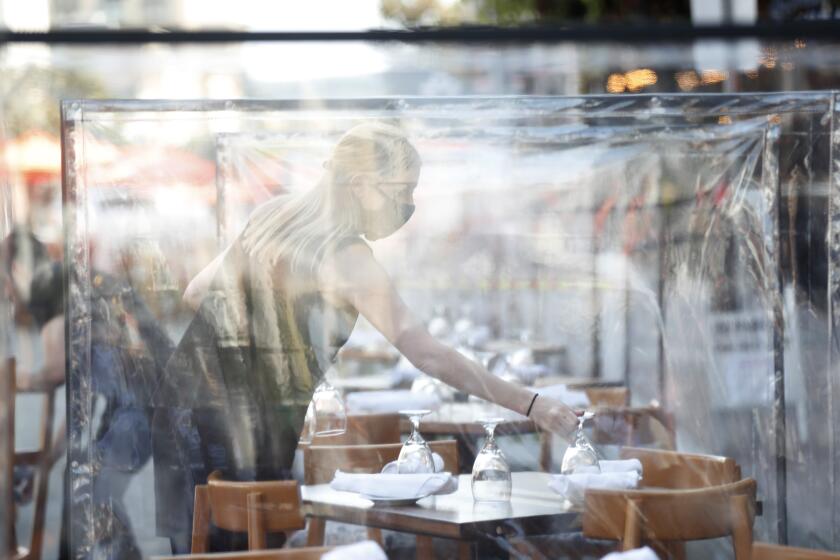Suspension of military honors at national cemetery burials compounds loss for families
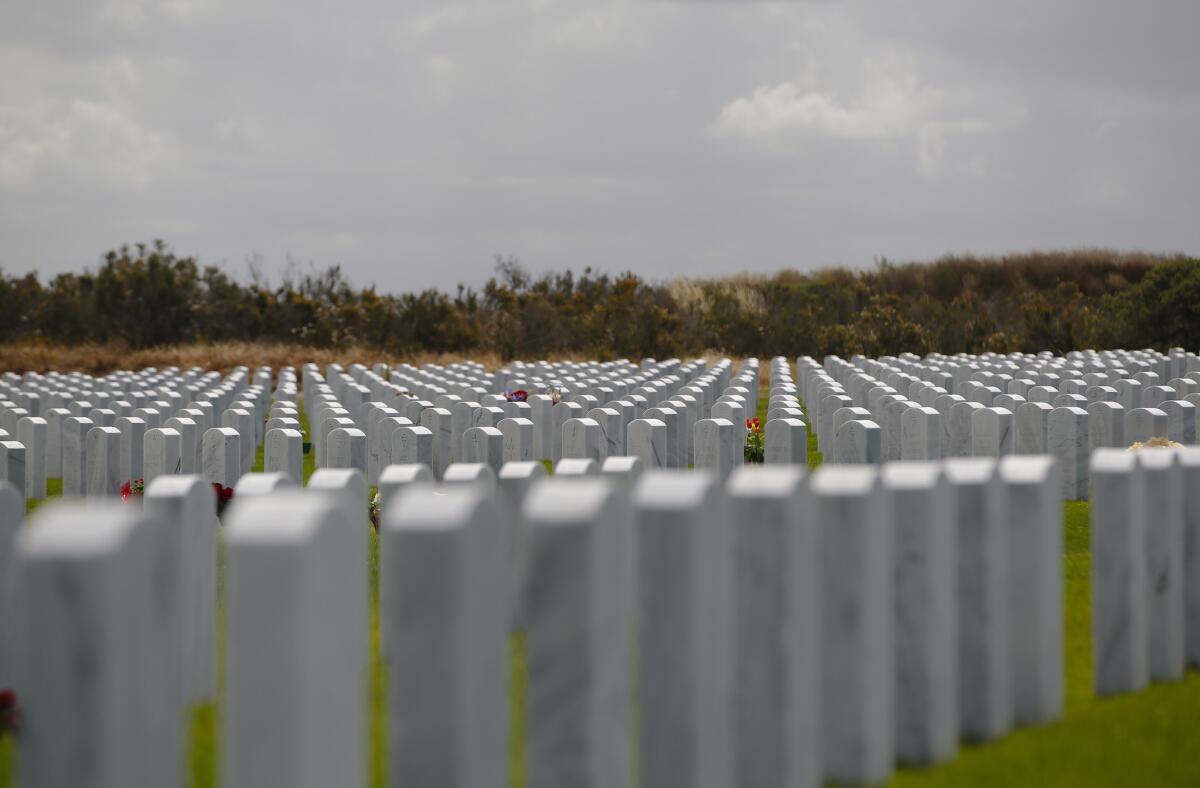
Without honor guards, gun salutes or folded flag ceremonies, families of recently deceased veterans say closure is hard to find.
A bugle playing taps, gun salutes and the presentation of a folded American flag to a mourning family are hallmarks of the military funerals conducted daily for veterans at San Diego’s two national cemeteries — Fort Rosecrans and Miramar.
That changed in March when, in response to the COVID-19 pandemic, the Veterans Affairs National Cemetery Administration suspended such ceremonies, leaving families without closure and depriving some veterans of their last wishes.
It troubles Mark Bartlett of Chula Vista. His father, Merlin Bartlett, was a 25-year Navy veteran who died May 8 at age 70 of an illness.
“What my father did for this country — he deserves better,” said Mark Bartlett, who with his brother also served in the military, in part at the urging of their father.
“He deserves full military honors,” Bartlett said. “It feels like there’s a void where there is no closure.”
On March 23, the National Cemetery Administration suspended burial ceremonies but allowed up to 10 family members to witness interments. On April 15, however, those rules were amended and families were asked to watch burials from their “cars or the road very near their cars.”
The notion of watching a casket as it’s lowered into the ground from his car doesn’t sit well with Kevin Carpenter, an Air Force veteran living in El Cajon. Carpenter’s father, Leonard Carpenter, was a Navy veteran of the Korean War. He died the first week of May age 89.
“I don’t want that to be the last memory I have of my dad,” Carpenter said.
Leonard Carpenter served on board the aircraft carriers Oriskany and Boxer in the 1950s and was one of the earliest enlisted men to train as a jet mechanic, said his daughter, LaReatha Carpenter.
“He took jet school to stay home longer,” she said. “That’s how we ended up in San Diego.”
Leonard was preceded in death by his wife, Dorothy, in October, LaReatha Carpenter said. She was buried at Miramar National Cemetery.
“What happened when we lost Mom at the end of October, everything went really smooth,” she said. “Mom has been at Miramar and Daddy just wanted to go rest with her — with a little bit of recognition that he had served his country.”
The loss of that solemn recognition also robs families of watching a grateful nation recognize these veterans, said Jay Anderson, a Marine Corps veteran and member of the Patriot Guard Riders. The volunteer organization participates in veteran funerals at families’ requests.
“Sometimes there are more of us than there are in the family,” Anderson said, because sometimes veterans outlive those who are close to them.
Anderson said the honors rendered at these burial ceremonies — such as when the honor guard removes the American flag from the casket, folds it and presents it to the family — give families a sense of closure.
“I’ve seen husbands, wives, brothers ... clutching those folded flags to their chests at the final moment,” he said. “It is so, so special. That’s when the nation has stood up and recognized their hero for their service.”
For now the VA is offering families the option to postpone burials or proceed with burials but hold a memorial service at a later date.
A VA spokeswoman said both San Diego national cemeteries could resume allowing traditional ceremonies soon.
“Both cemeteries are developing plans to resume committal and memorial services, but we have no scheduling announcements at this time,” Jessica Baxter, a Los Angeles VA spokeswoman, said in an email.
According to Baxter, VA cemeteries will return to normal operations when they can adhere to local health guidelines, such as social distancing, when they can allow at-risk populations to attend and when military personnel are available to provide military honors.
The decision, she said, is up to the National Cemetery Administration.
Until that decision is made, families such as the Carpenters and the Bartletts face two uncomfortable choices — watch burials from their cars or delay burial for weeks.
The Carpenters are waiting, they said.
Bartlett said his father will be buried at Miramar on Friday with the family watching from their cars.
“We visited Miramar and Rosecrans,” Bartlett said. “A funeral with full military honors was something he always believed in. He wanted that — my mother deserved it, too.”
The families each said they understand the importance of protecting people from COVID-19 but accommodations could be made. Anderson agreed, saying that other parts of San Diego are reopening.
“I’m not advocating going into a church or mortuary,” Anderson said, “but if we can do other things to reopen, we can come up with a process in such a way that would be appropriate, dignified and would honor the deceased.”
Memorial Day changes
Memorial Day observances also will veer from tradition this year because of COVID-19 regulations prohibiting large public gatherings.
Every year in San Diego, major commemorations are held at four landmark sites: Fort Rosecrans National Cemetery, the USS Midway Museum, Miramar National Cemetery and the Mt. Soledad memorial.
This year the four events will be combined into one hourlong virtual simulcast ceremony that people can watch live, without leaving their homes. The service will shift from location to location, each featuring a special event.
As before, there will be bagpipes, wreath laying, buglers playing echo taps and a military jet flyby in the missing man formation.
This time the live ceremony will be simulcast on www.sandiegomemorialdaylive.com from 9 to 10 a.m. and posted on YouTube and other websites afterward.
Each of the four locations will concentrate on memorials for veterans who served in various eras of service, including World War II, Korea, Vietnam, recent conflicts and the war on terrorism.
Each site will have 15 minutes and will feature speakers, including MCRD Brig. Gen. Ryan Heritage, Navy Region Southwest Cmdr. Rear Adm. Bette Bolivar, Mayor Kevin Faulconer, San Diego Police Chief David Nisleit, U.S. Atty. Bob Brewer of the Southern District of California and others.
No public spectators will be allowed to attend the live simulcast services.
Diane Bell of the San Diego Union-Tribune contributed to this report.
More to Read
Start your day right
Sign up for Essential California for news, features and recommendations from the L.A. Times and beyond in your inbox six days a week.
You may occasionally receive promotional content from the Los Angeles Times.
